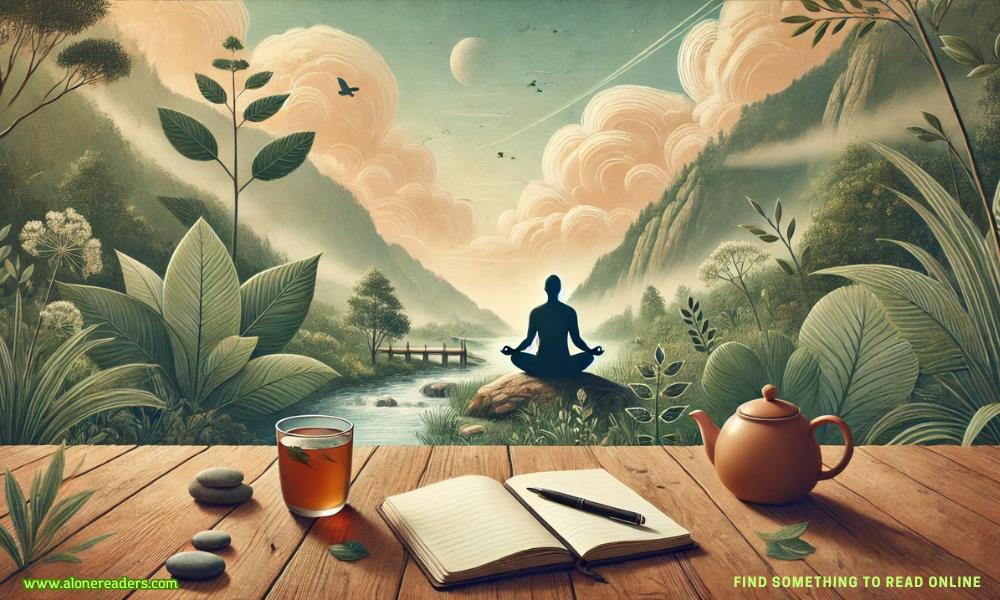Page 23 of However You Want Me
And—
The way she saidback in that housejogged something in my brain. That’s how I would’ve saidback at school. That’s how I thinkback at schoolin my own head.
My mind races and I remind myself that I need to stop. It’s only the news and the recent events that have brought all of this up.
“It’s your grief and you’re allowed to acknowledge that you feel that way. You can process it just like you are. Talking through it. The more you do, the easier it will come and the easier it will feel.”
She tries to respond but can’t, I look at the 20-year-old like she is me. That’s how I used to lay when I was struck with the past and could barely move, let alone talk about it.
I know the situation isn’t the same. What happened to Kelly with her ex-boyfriend was just as wrong as what was done to us in school, but there are some differences that I’ve been careful to acknowledge.
One similarity is that it wasn’t our fault. What happened to me happened because of my parents, and in another way, it happened because of the people who lied to my parents.
What happened to Kelly happened because of her boyfriend. It was his choice to act the way he did.
I think Kelly is at a place where she’s ready to see her own power again. That can be extremely hard, but without it, some people don’t feel that their lives are worth living.
“Kelly.” I keep my voice soft and my notebook and pen down. This is something I want to say to her directly, and I want her to hear it from me directly. I look her in the eyes, and her expression brightens with tentative hope. “Everything that happens—good or bad—has an impact. Sometimes it’s harder to see the changes that good things bring, but they affect us just like the bad things. All our experiences shape us this way. We’re constantly growing and constantly learning, and we’re all a little different every day because of what happens to us and because of how we deal with it. Those are the things that make us who we are. And you are coping the best you can and you’re taking steps. These are things to be proud of.”
She swallows, the cords in her neck tightening, “The only thing that makes sense is to pretend it didn’t happen or forget about it somehow. How else am I supposed to leave it in the past?”
“You don’t.”
Kelly’s doe eyes go wide.
“You can’t leave it behind because you can’t leaveyoubehind. I know it hurts to have this with you. I know you’re suffering, otherwise you wouldn’t be here. If you could forget or pretend it didn’t happen, you’d be out there living your life and not trying to work through this.”
Kelly makes a helpless gesture, speechless at my suggestion.
“I think the only way to leave these experiences in the past—in any shape or form—is to accept that they happened and accept that they changed you. And then, when old feelings come up again, remember that you survived them once. Acknowledge the pain. Process your feelings and talk it through. They might feel as strong as they did when it first happened, but the difference now is that they can’t control you. You got away from your ex-boyfriend. He can’t ever change the things he did or the way he made you feel. But you can choose how you live from now on.”
Kelly looks at me for a long moment, her lips pressed into a thin line.
“You’re the one who makes decisions about your life now,” I press on. “You decide what you’ll do, no matter how you feel. You have control over your life. You do. I know it doesn’t always feel like that, but you do. You can choose what to do with those feelings.”
“What if I just ignore them? Just choose not to feel them?” She leans slightly into the arm of the chair, pulling her legs up. Her arms wrap around her jeans and the sleeves of her thin sweater fall over her hands. Her blue eyes beg me to lie to her. I can’t do it though. I won’t ever hurt someone like that.
“I’m not sure that’s going to work; it hasn't yet, right?” I answer and her expression crumples. She moves the tissue to the corner of her eyes as I talk. “Acknowledge them—and then make your own decision. Whatever harm you suffered, whatever damage other people did, that’s the end of their power over you. You can decide to move forward however you want.” She reaches for another tissue and the sun sets slightly behind her, darkening the room. I add, “It might take time, and it might be difficult, but you can make those choices. You do have a choice to make, even when it doesn’t feel like it. Even when it feels harder to have a choice.”
She’s silent, absorbing my words.
“So, at work,” she says slowly, “when it comes up again?—”
We go through the situations at work that send her spiraling. We talk out different ways to respond and methods for centering herself so shecanrespond instead of reacting to what happens. We spend the last part of the session making plans for what Kelly can do at work and with her friends and with her family to remind herself that she has control. Not over everyone, but over how she chooses to respond.
Kelly doesn’t like the idea of sitting with panic or grief until those feelings aren’t so intense, but she comes around to it. “There’s no shame in walking away and taking a moment before responding to someone or to a situation.”
“Better than having a breakdown,” she finally admits. “Even if I hate it.”
I offer her a small smile. “Sometimes I hate it, too. Feelings are like that, especially when they’re related to trauma.”
When Kelly heads for the door, she’s standing up straighter and her eyes are dry. Her chin is lifted. She looks far more hopeful than she did when she walked in.
“Thank you,” she says. “Thank you. That really helped.”
“You’re welcome,” I say. “I’ll see you in two weeks.”
I watch her go, feeling hopeful, too.
- Beneath the Burn by Pam Godwin
- Unhinged by Jane Henry
- Praise Me: Soldier by Jessa Kane
- Irresistible Temptation by Tory Baker
- The Brat and the Bodyguard by S.E. Law
- Seduced By the Mafia Don by Flora Ferrari
- Mountain Protector by Stella Banks
- Kissing My Brother's Best Friend by Lena Little
- Tempted By the Devil by Sienne Vega
- Husband for the Holidays by Dani Collins
- Arranged by Piper Stone
- Redemption by Tori Fox
- Inked Soul by Jade Marshall
- Speed by R.J. Scott
- Always You by R.J. Scott
- Dark Souls by Aura Rose







